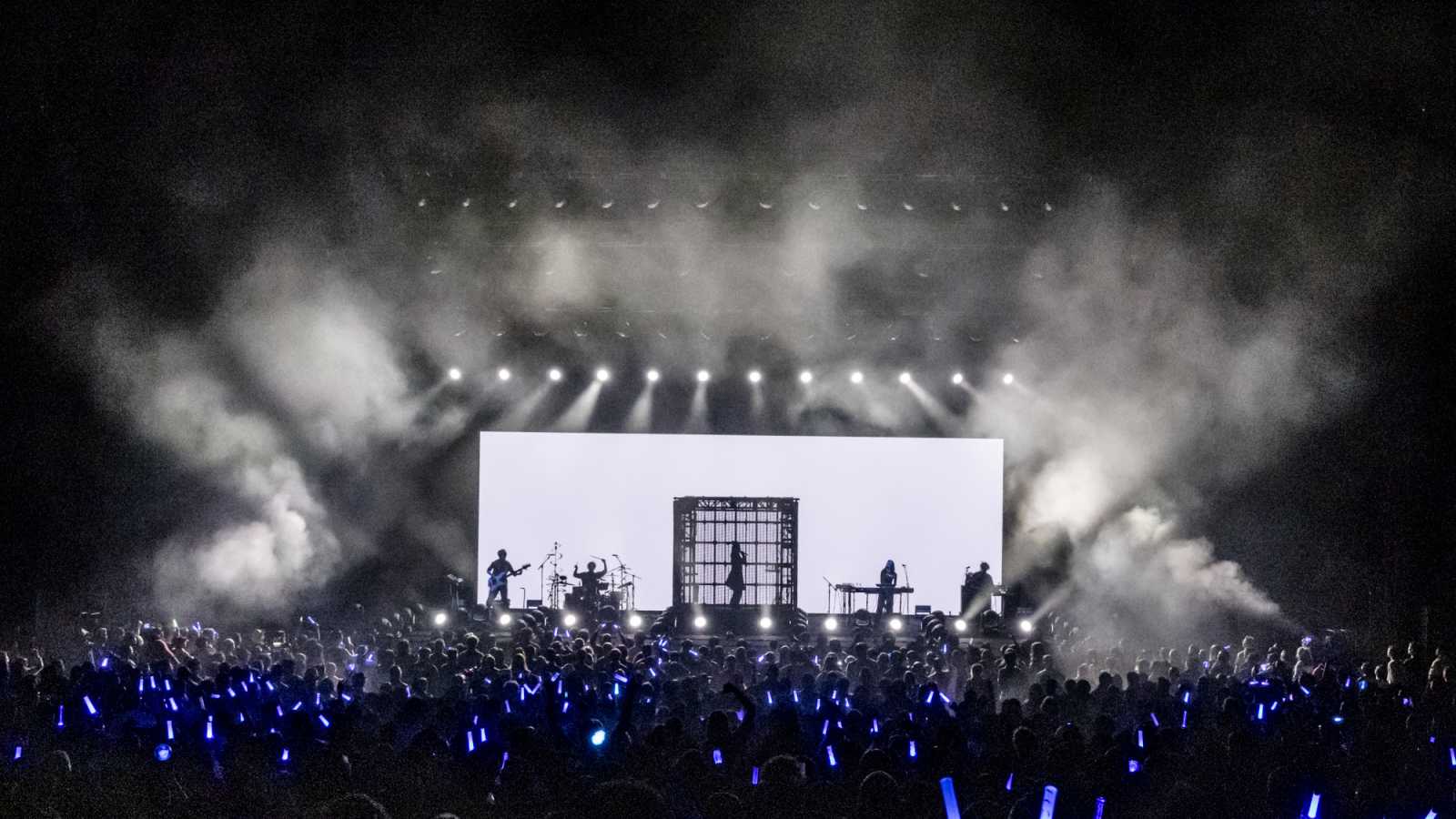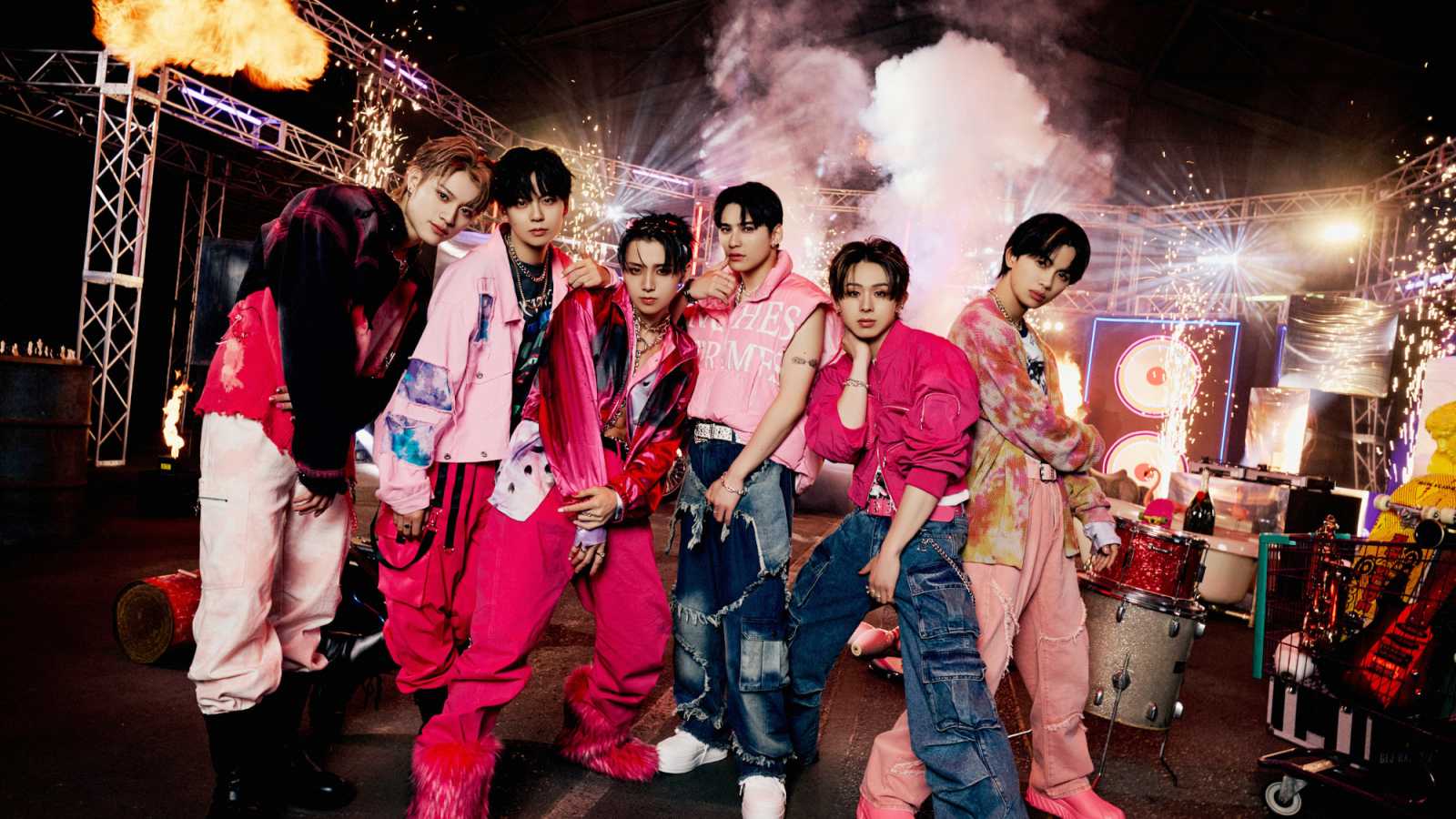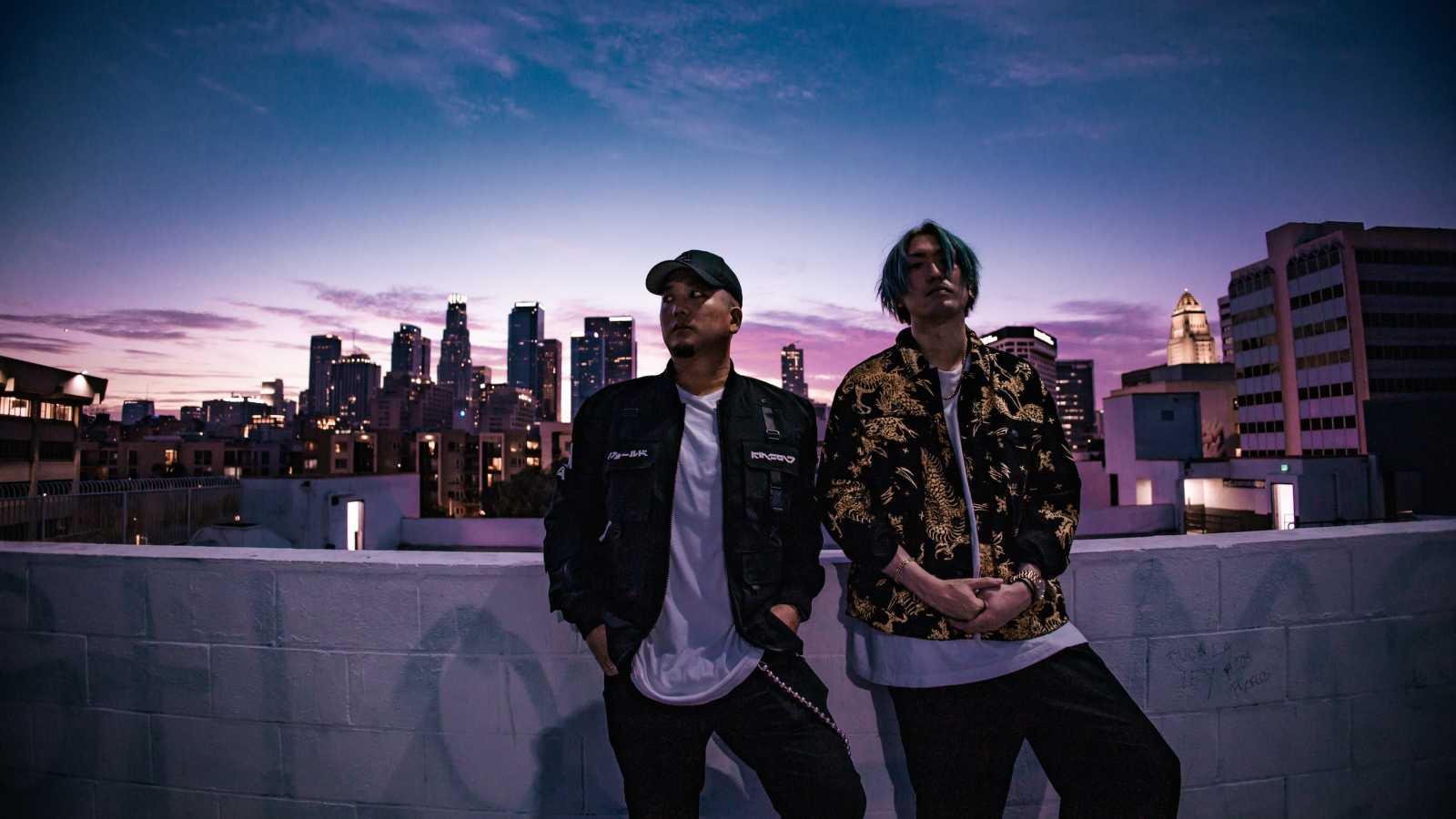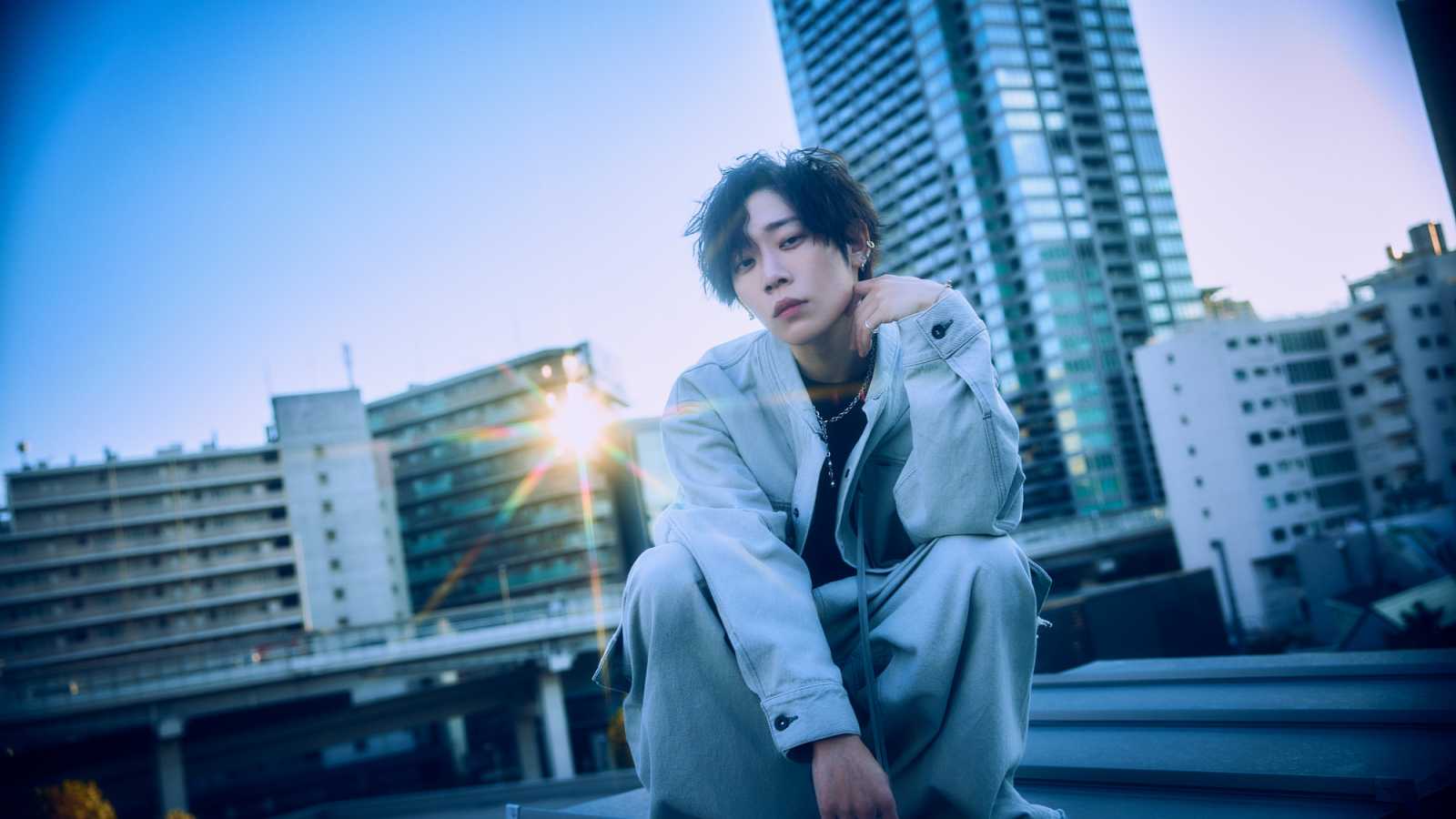JaME took the opportunity to introduce the popular visual kei band Sadie to our readers in a short interview.
Shortly after the release of their first full album MASTER OF ROMANCE, Sadie sat down with JaME to talk about their history, the new release, thoughts on overseas activities, and more.
Could you introduce yourselves to our readers please?
Mao: I’m the vocalist, Mao.
Tsurugi: I’m the guitarist, Tsurugi.
Mizuki: I’m the guitarist, Mizuki.
Aki: I’m the bassist, Aki.
Kei: I’m the drummer, Kei.
How did you come up with the name Sadie?
Mao: Before I founded Sadie, there were various bitter sad things which made me feel down, so I thought of making a band with the theme of the ‘sadness’ I had in me at the time, so I thought of Sadie from the word ‘sad’.
What is the band concept?
Mao: Presently, our concept is broadening in many ways, but when we first formed the band, our concept was pain, sadness and despair. I put them in my lyrics and expressed them directly.
Could you tell us how the band was formed?
Mao: After my former band disbanded, I had one year when I wasn’t in any bands, and at that time many things happened, including some turning points in my life. When I thought of making a band, I first invited the bassist Aki, and the two of us discussed our ideas: "We want to make this kind of band," and made plans together, (speaking to Aki) didn’t we?
Aki: Yes. (laughs)
Aki, what did you think when you were asked? Did you think you would start working with Mao soon?
Aki: When I was first asked, it didn’t ring a bell straight away (laughs), but I decided to work with him because what Mao wanted to try to do was close to my ideas from the time when I left my former band.
After that how did you meet the other members?
Mao: It happened differently with each member, but we searched for them in various ways: watching with our eyes, listening with our ears and, of course, looking at their human nature; from there, we could determine the line-up quite smoothly.
Did you both go and see various lives to search for members?
Mao & Aki: Yes.
When and how did you start your music career? What inspired you to start music?
Mizuki: I played in a band when I was a high school student.
What kind of band was it?
Mizuki: Well, it was totally visual kei (laughs).
Did you play guitar at that time?
Mizuki: No, actually I played bass at that time. Because there was no one else to play bass (laughs).
So did you change your position to be a guitarist after that?
Mizuki: To be honest, I had been wanting to play guitar for a long time, but I happened to play bass at that time. I had been thinking to enter college normally until then, but at that point I thought, "I want to play in a band.". Then I didn’t study anymore and just played music all the time (laughs).
Kei: I played music just for fun in my school days, but didn’t think to work in the music scene especially. After I graduated high school, I went to Osaka and did part-time jobs normally, when I was invited by my friend, "Why don’t we play in a band?", so I said “I’ll do it.” And we started. The time when I thought "I want to do it seriously" was the same time that this friend of mine told me "I quit." I was so upset that I thought "I'll do it!" and became even more determined.
Mao: I had vague feelings at first. I didn't think anything like "I want to do music for my living." Generally speaking, when people start playing instruments, I don't think any of them think like "I’ll earn my living with music" at the beginning. Well, they might feel it in their mind. I had played in a band since I was a high school student, but I made a final decision "I'll do music for my living" when I went to university, when I studied abroad in the UK, came back, and quit university. I was wondering what I really wanted to do, I thought "I'll put my life back into shape.", it was at that time that I decided "I will only earn a living by making music, even if I end up poor."
You never thought of being anything but a vocalist?
Mao: No, I didn't. I started music from guitar, but I stopped guitar in the middle of high school. Vocals are more fun for me.
Aki: I had played piano from my childhood, and continuing from that I started a band. I don’t remember the details... But I couldn't think of anything else other than music. So I don't remember any prompts or such, it just started naturally (laughs).
Tsurugi: I thought to do music for a living when I went to college. When I graduated high school, I was interested in music, so I entered a music technical college, a so-called sound arts college that trains for work such as a sound engineer or for jobs related to recordings - but then, I suddenly realized, "No, maybe, I want to be a front man." I consulted my parents and relatives, and looked for a technical college for that, but finally I decided that was up to me to study it myself. Even though there are special colleges, all they do is teach the basic things. So I thought, if that’s the case, I’d just play an instrument by myself. I felt the same as Aki, what I wanted to do was nothing but music. I think my environment was good. I’m happy to be able to continue doing music.
What are your musical influences? What other experiences do you get influences from?
Aki: It’s everything, such as sounds I hear, people whom I deal with, and so on. I think it is everything, like, for example the background music that is playing now and the conversation that we are having in this interview now, everything would have influence on our music.
You're often lumped in with "visual kei" as a band, but your image is similar to other mainstream metal acts. How do you feel about being associated with "visual kei" artists? Do you define yourselves with this term?
Sadie: Yes! We are visual kei.
Don’t you feel any resistance towards that?
Aki: No, I don’t feel any resistance.
Tsurugi: We might seem like a "metal act" because our music approach related to things such as the guitar sound or the drums, stands out strongly. But it’s just the technique we use to express our music, and it might change from now on. We don’t have a fixed concept like we have to do that kind of music because we wear this kind of make-up.
How do you create your songs? What is your process for putting the songs together, and does everyone contribute to the compositions?
Aki: We often do so that each member makes demo songs and brings them in, then we play them in jam session at a studio.
Are the types of demo songs made by each member different?
Aki: Well, the personality of each member shows through the types of songs made and degree of their completion. It’s difficult to express thoughts about sounds in words... Well, at any rate they eventually become songs...
Tsurugi: At least it should be completed to the level where the five members would listen to the demo and be able to understand "Ah, he wants to do this kind of thing." (laughs).
Aki: Sometimes there would be a level where we would actually need some verbal explanation in order to be able to understand that (laughs). But Tsurugi pursues high quality strongly.
Tsurugi: I make it very complete because I make the members listen to my world view right away. Of course, I know eventually above all is the world view of Sadie, but I have to make a presentation to the members first. If I can’t make the members understand what I want to do and what kind of world view I want to express, the whole meaning of making and bringing out the song would disappear, so I make it complete and then eventually I break it down.
Aki: The demos made by the other members are like images. If I compare them to pictures, they are like abstract pictures. On the other hand, the ones from Tsurugi are like sketches.
Does it happen that the demo songs change to be quite different as you jam in the studio?
Aki: Of course, it does. But as long as we all think the changes would be for better, we don’t feel any resistance against that.
Do you put your lyrics later?
Mao: I put them later after completion of the song. Although it’s different depending on whether the main basis is the vocal melody or the instrumentals, I often put my lyrics at the very last moment after we have made the orchestral parts, have finished each instrumental part and the vocal melody. I have a notebook for making my lyrics, and I use it to choose and use the ones the image of which is closest to the song, so I do it just using my senses.
For your fans who don't understand the Japanese lyrics, can you tell us what some of your messages in the songs are? What is the general theme of your lyrics?
Mao: I can’t really determine a main theme, but I basically express the changes in my mental state most oftenl. For example, in one year we have about 3 periods of time between our releases and our lives, and I want to write about my experiences during those periods honestly and directly. It’s sometime asking like “Now I think like this. How do you think now?”. I want to make it like a diary as much as possible, and express the stream of my life and my environment directly. Whether at the given moment in time I’m going down to the bottom, whether I want to express something to someone, whether I’m happy, I want to write about my mental state honestly as it is.
Some of your songs like waver in darkness have a lot of English lyrics. Why did you choose to use English instead of Japanese in these instances?
Mao: It’s not that lyrics should be written in English nor written in Japanese, but when I imaged the song whether the nuance of the sounds was in Japanese or in English, I thought English sounded more appropriate so I chose English. It was just a feeling. As long as it fits to my image, all of them written in English or Japanese would be all right, or we could mix both too.
Sadie has just released their first album MASTER OF ROMANCE on February 25th. What was it like recording a full album? Did the process meet your expectations?
Aki: It went alright. After all, what we had been imagining was just fantasies, so the reality is, of course, more cruel, but it was completed quite well. Although after we had finished I looked back and wished we could have made it better, since I’m human (laughs).
Did you start making songs after you had decided the concept of this album?
Aki: Yes, we did. We have never made songs which have no concept, so everything which we have released until now had their concepts.
This album starts with imaginary creature, which is like an overture with beautiful piano sounds, powerful Ice Romancer and dark and heavy shingan follow. It has various types of songs, running high with Grieving the dead soul, and ending with the dramatic Swallow Rain. It feels like we have finished reading a story when we finish listening to the album.
Aki: I think each song has to be a drama and we conclude one story in one song, however, when we line all of them up, the whole album has to be a story as well, so we paid a lot of attention to that.
Mao, your voice changes depending on the songs. Do you change your way of singing to fit the image of a song?
Mao: Of course, there are songs in which I sing normally and in a straightforward manner; however, I want to show more "colors", so I try to sing in different ways. Saying "to sing" has a nuance of "vocals," but for me, I want to make my voice to be like "an instrument." I think it would be nice if I could do that, so I sing in a variety of ways.
In this album, we hear a wide range of songs, such as simple and straight VIRTUAL FAKEMAN, dramatic songs like Scarlet and ageha no nakigara, catchy rock like kagerou, and Parasite scene, which has a grotesque image.
Aki: I think there is no point to making the same kind of songs. If we already have one type of song, I think that song is enough. To make a similar song is...well, although I know there is a difference in levels between 'similar' objectively and 'similar' subjectively...we still try to make something different when writing songs. This way, there is some point through which we can say "this is different" clearly, even though it might seem like it's two songs of the same kind.
March 18th is the 4th anniversary of your debut live. How do you feel your concept and objectives as Sadie have changed in these 4 years?
Aki: Basically they haven’t changed, but I think we became able to see more details and to be realistic. I think what used to be obscure became easier to understand.
Mizuki: As for me, what I want to express has changed. At first, my image was girly and I had long hair (laughs). My image was determined so explicitly at first, but now I do whatever I want to express quite freely.
Kei, you joined later, but did you get used to the band quickly?
Kei: It was hard to memorize songs, but it was rather easy to get used to members.
Mao, how do you feel about these 4 years?
Mao: We didn’t do big things loudly but we climbed up the stairs step by step quite smoothly, so I feel like we piled up small things steadily to bring us to what we are now. In such a meaning, I don’t think there was any huge change, but I kept going at my pace, kept going the way that I believed in, even though the environment changed over time, and the result is what we became now.
Aki: The core part hasn’t changed for 4 years. I think that we were able to express our core part in many different ways.
Tsurugi: For me, these 4 years were very dense, so I don’t remember when and what happened and how we actually grew, as everything has moved on really quickly (laughs). But I remember I used to say my opinions as much as I wanted to at first. Recently, I know my responsibility, what I have to do and what I should do more. Before I was a child but I have gradually become an adult (laughs).
Did you argue sometimes before?
Tsurugi: Well, even now, we have discrepancies in our opinions, of course (laughs). But because we are all serious about the band, it’s bound to happen, so I think on the contrary that it’s a good thing.
What are the roles of each member in the band?
Tsurugi: I have been concentrating on writing the songs since the band was formed. When we do pre-production prior to recording, I record the sounds of all members, arrange and send the materials to our co-workers to show "We’ll record such music and songs for now", and I mainly produce our demos. And as you know, if we want to express all the sounds that are recorded on our CD's during the lives, we can’t do that with just 5 members, so I maintain such synchronized sounds, and I also manage instruments and materials for our lives.
Aki: It has been changing gradually, but basically I do everything. I make songs, and designs. Oh, I made this too. (He points at the DVD jacket of Grieving the dead soul, which contains the live recording from Akasaka BLITZ on October 5th, 2008.) For the time being, both Mao and I are band leaders. And my biggest role is "to make the members do it once again if it’s wrong" (laughs). Maybe other members won’t say it out loud, but if I think something won’t go, I say it... Well, I’m the person in charge to say "No, do it again" (laughs).
Is Aki strict?
Tsurugi: Yeah, he is so strict!
Sadie: (burst out laughing).
Mao went abroad to England for a year. How was the life and what did you learn there?
Mao: Well, it was just normal. I did a homestay and went to school, then I entered a dormitory for students in which we had our rooms and a kitchen that we shared for cooking. I don’t really know the reason why I went there.
You didn’t go there to study English?
Mao: No, I didn’t. I didn’t have motivation to be a student in Japan, so I went there to look for motivation. Then I thought "I’ll quit my school" when I came back to Japan. So it was for my own life experience rather than to study English.
You have mentioned that you've been getting foreign fan mails. Would you like to perform overseas some day?
Aki: We have many fan mails and get quite a lot of questions. I want to do lives overseas.
What about fan club membership for overseas fans?
Aki: Now only people who live in Japan can be members of our fan club, but it would be cool if our band got bigger and fans all over the world could get our fan club magazine no matter where they are.
Please give your message to foreign fans.
Mizuki: We’ve only played in Japan so far, but we want to do lives overseas too, so please keep waiting. I’m sure we will definitely come, so please look forward and wait for us!
Kei: (in English) I need you!
Tsurugi: We have never done lives overseas, so I want to try playing there. But if you have never seen our lives and if you really want to see them, please come to Japan!
Aki: I want to do a world tour someday. And it would be nice if you could get our CD's in any places.
Mao: I’m expressing music and we are the same humans no matter where we live. You can watch our videos and listen to the music of Sadie with the help of the internet, and if you are impressed with it, if there is a place somewhere in the world where we can connect with the people who need us, I want to make sure whether it’s real one by one, so please wait for us with patience.
Thank you!




